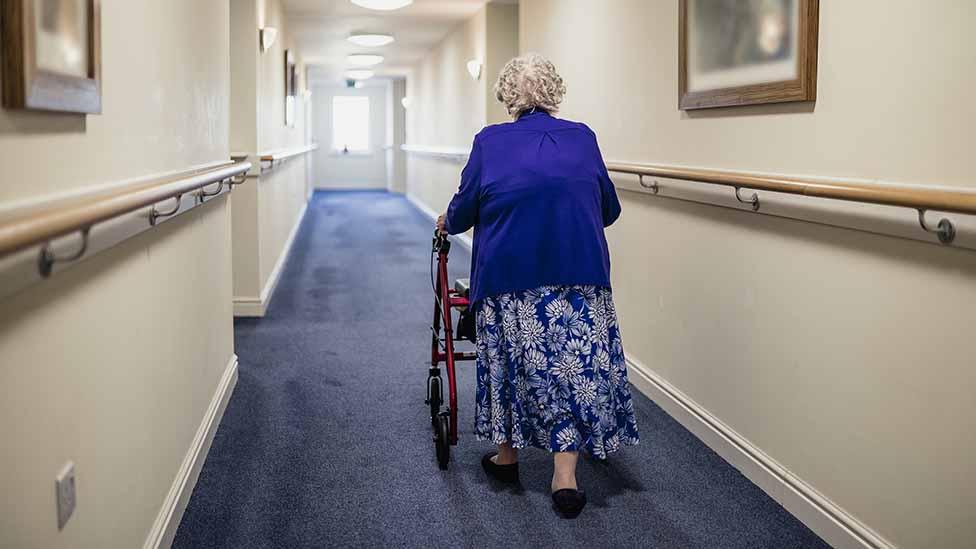Coronavirus: Recovery plan implemented 'long before' December
- Published
- comments
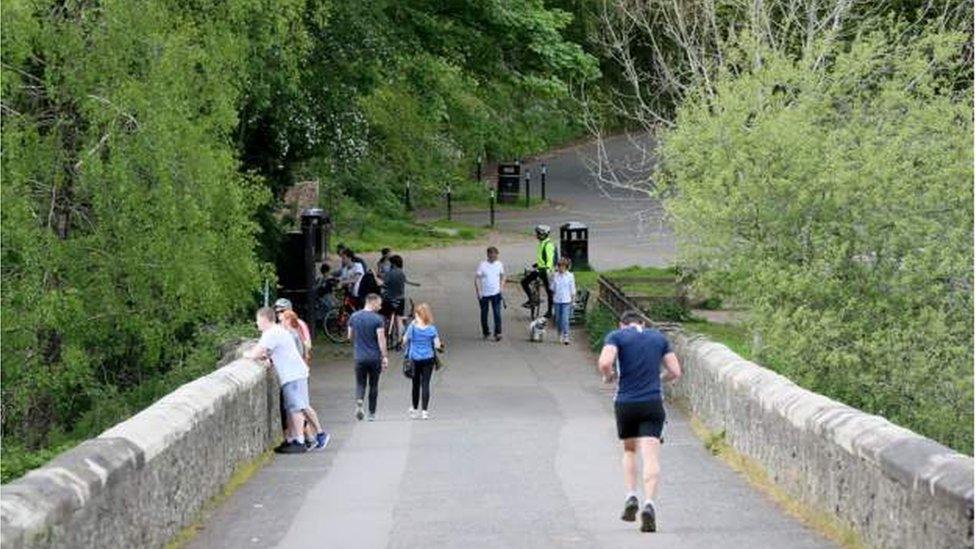
The first step includes changes to rules on exercise and allowing churches to open for private prayer
The NI Executive's five-step plan for easing lockdown, external will hopefully be implemented "long before" December, the first minister has said.
On Tuesday, Arlene Foster suggested it could take up to the end of the year before the final phase was triggered.
Some trade groups have expressed concerns that the executive's blueprint does not include a timetable.
But NI could reach the first stage of the process as early as next week, if health criteria is met, ministers say.
On Wednesday, a further two coronavirus-related deaths were reported by Northern Ireland's Department of Health, taking its total, mostly comprising of hospital deaths, to 449.
One of the deaths happened since Tuesday, while the other occurred earlier but has now been added to the department's figures.
The death toll is likely to be higher when all deaths in the community are recorded.
Governments in the Republic of Ireland and England, external have already set out plans that include a timeframe, with the first of those restrictions in England being lifted from Wednesday.
Northern Ireland has its own powers to set and lift restrictions at different rates than the rest of the UK.
Speaking to BBC News NI during a visit to a school in Lisburn, County Antrim, on Wednesday, Mrs Foster defended the executive's decision not to produce a timetable for its plan.
"I know people like to look at differences and criticise us for not having dates - if we had had dates we'd have been criticised by others, we have to keep a balance and try to get flexibility built in," she said.
Social distancing 'for up to 24 months'
Nothing will change immediately as the current lockdown is in place until at least 28 May, but ministers have said if evidence shows the transmission of the virus is kept as low as possible, it might be possible to move to the first phase sooner.
Mrs Foster stressed that at any time, restrictions may be reinforced if the transmission of the virus rises.
"When we begin to move we'll be able to assess how relaxation of the regulations is impacting on the R-number and then if they have impacted, not in too much of a way, we can then move to the next relaxation.
"This is a step by step process. At all times we have to look at the prospect we may have to move backwards if the R-number goes above one."
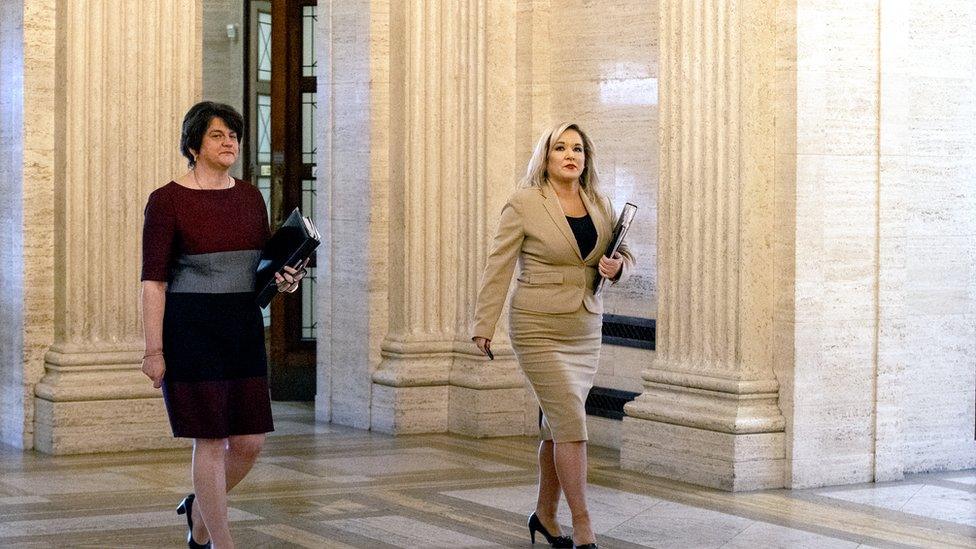
Arlene Foster and Michelle O'Neill announced their five-phase plan at Stormont on Tuesday
The first step of easing lockdown would include changes to rules on exercise and churches being able to open for private prayer.
But there is no indication when later steps, which would allow retail, hospitality firms and services including hairdressers to reopen again, could be triggered.
Deputy First Minister Michelle O'Neill has warned social distancing may be in place in Northern Ireland for the next 18 to 24 months.
Why does the R-rate matter when it comes to lifting lockdown?
The R-value - or reproduction number - is at the heart of the NI Executive's decision to extend the lockdown until at least 28 May.
R refers to the average number of people someone with Covid-19 is expected to infect after contracting the virus: the goal is to keep R under one.
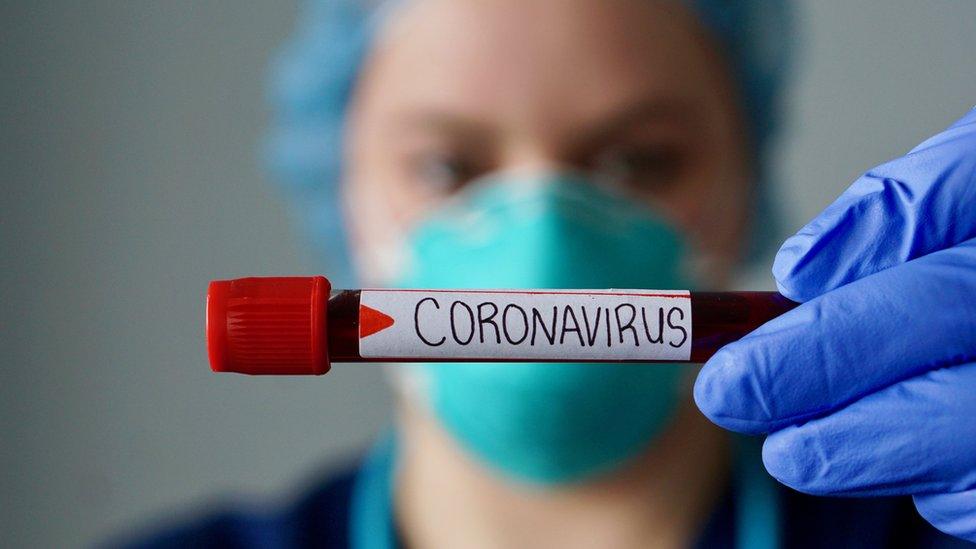
The R-number is crucial to determining when restrictions can be lifted in Northern Ireland
The most recent indication is that Northern Ireland's R-rate in the wider community is sitting below one, at 0.79, but ministers say it must fall as low as possible before they will ease restrictions.
It is not clear what level the R-number should fall to in order for that to happen.
The Department of Health said the R-rate is calculated mostly on intensive care occupancy and hospital admissions, but that care home cases have essentially "no impact" on it.
The executive's Chief Scientific Adviser Prof Ian Young told BBC Radio Ulster's Nolan Show the R-number in care homes across Northern Ireland is "significantly above 1.0 at the moment".
How have business groups reacted to the plan?
While some of them have welcomed the recovery blueprint, others said it did not go far enough.
"Saying off in the distance somewhere you will be open, without knowing if there is a lifeboat to take you there is a huge challenge," said Colin Neill of Hospitality Ulster.
It is not just about businesses opening their doors again but also ensuring supply chains can cope, added Aodhán Connolly, director of the NI Retail Consortium.
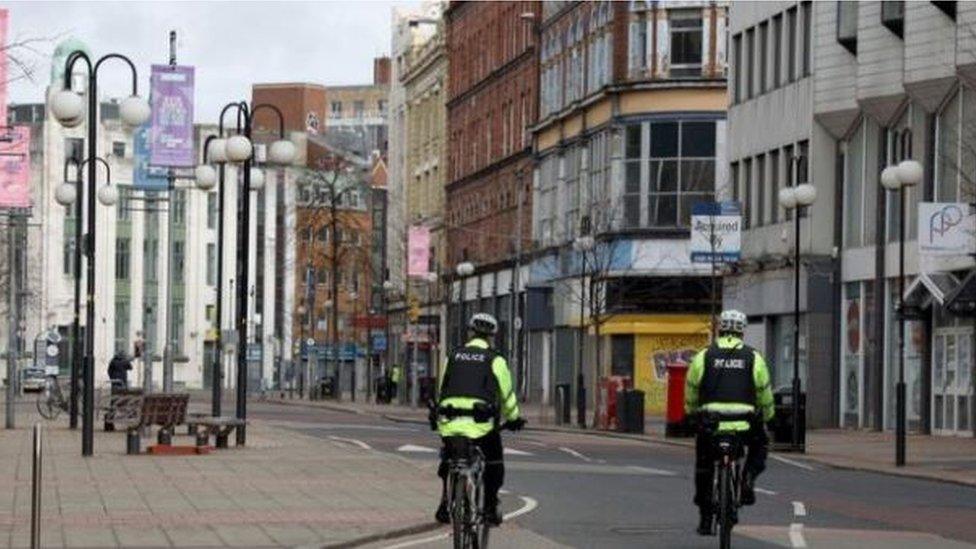
Most shops, restaurants and pubs have closed their doors since the lockdown began in March
"Some stores need five or six days, but other stores need three or four weeks so that people who supply them are ready to go."
Owen Reidy of the Irish Congress of Trade Unions (ICTU) described the plan as a missed opportunity and urged the executive to "go back to the drawing board".
The executive's document points to statistics produced by the Office for Budget Responsibility in the UK, which suggests that "each month of lockdown is akin to a large recession".
The economy shrank by 2% in the first three months of 2020, external, as coronavirus forced the country into lockdown.
The executive has acknowledged that some businesses in NI will not survive the crisis, but an additional paper on economic recovery is due to be published by Economy Minister Diane Dodds next week.
How will NI's plan tie into the Irish government's approach?
The Republic of Ireland will begin the first step of its five-phase plan from 18 May, with the final stage planned for 10 August.
There have been questions about how its plan fits with the approach in Northern Ireland, given the two jurisdictions share a 310-mile long border that many people usually cross each day for work or leisure.
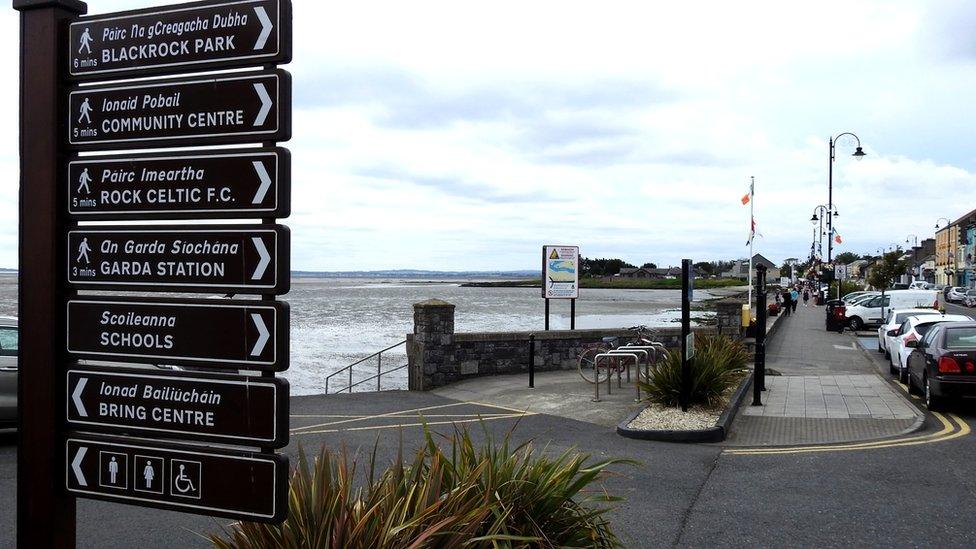
Meetings will continue between executive ministers and the Irish government
The NI Executive's blueprint for recovery includes more detail on north-south collaboration to tackle the virus, after a memorandum of understanding formalising co-ordination between the two governments was signed last month.
While both governments will relax restrictions across the island on common principles, there may be times when there are "nuanced differences of approach" as a result of the circumstances in differing jurisdictions or of the timing of decision-making.
Executive ministers are expected to hold another meeting with their counterparts in Dublin later this week.

A SIMPLE GUIDE: How do I protect myself?
AVOIDING CONTACT: The rules on self-isolation and exercise
WHAT WE DON'T KNOW How to understand the death toll
TESTING: Can I get tested for coronavirus?
LOOK-UP TOOL: Check cases in your area

- Published12 May 2020
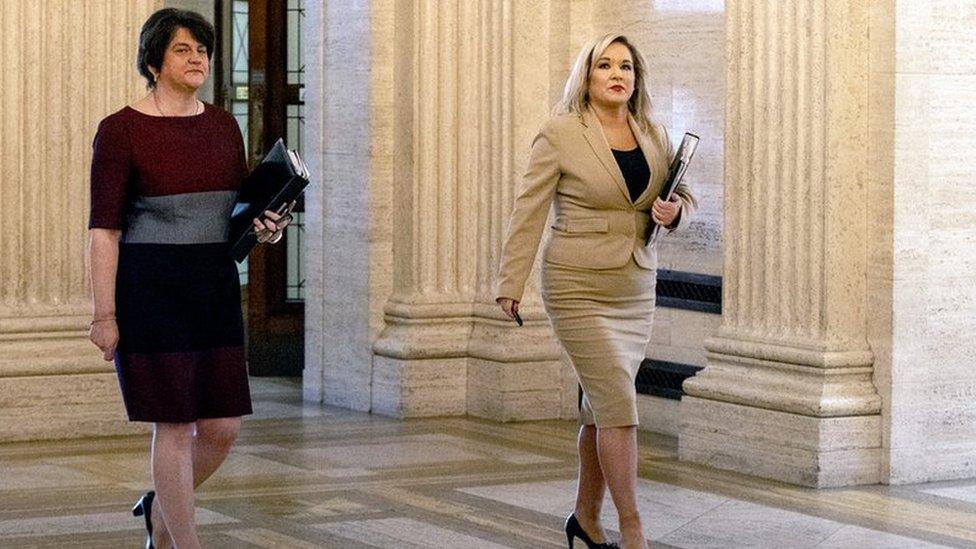
- Published20 October 2020

- Published12 May 2020
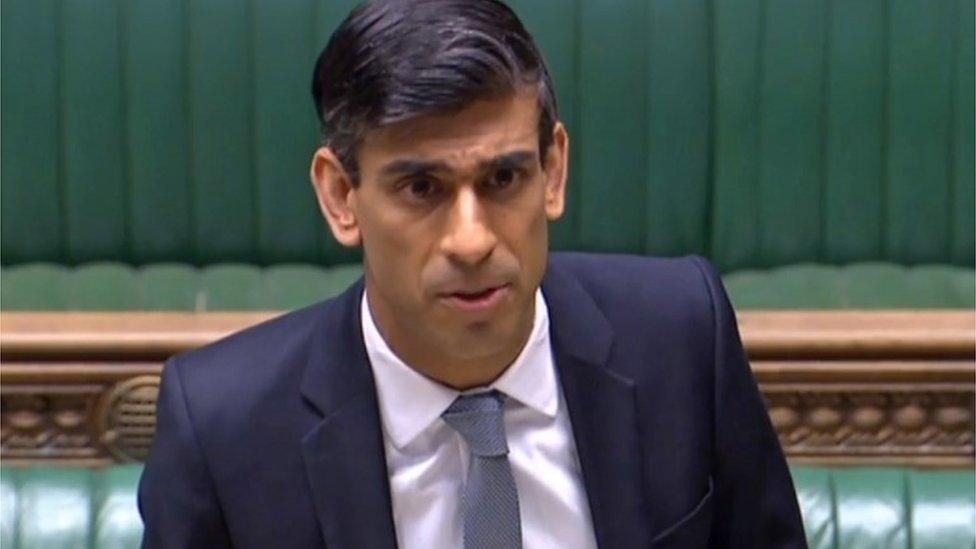
- Published12 May 2020
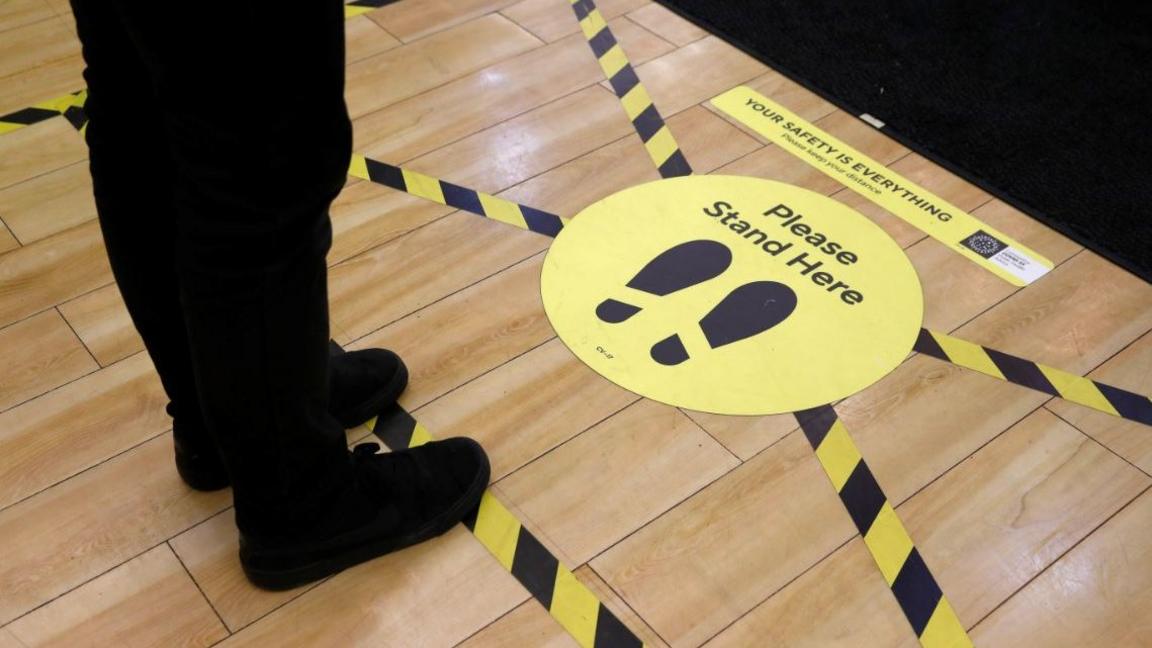
- Published10 May 2020
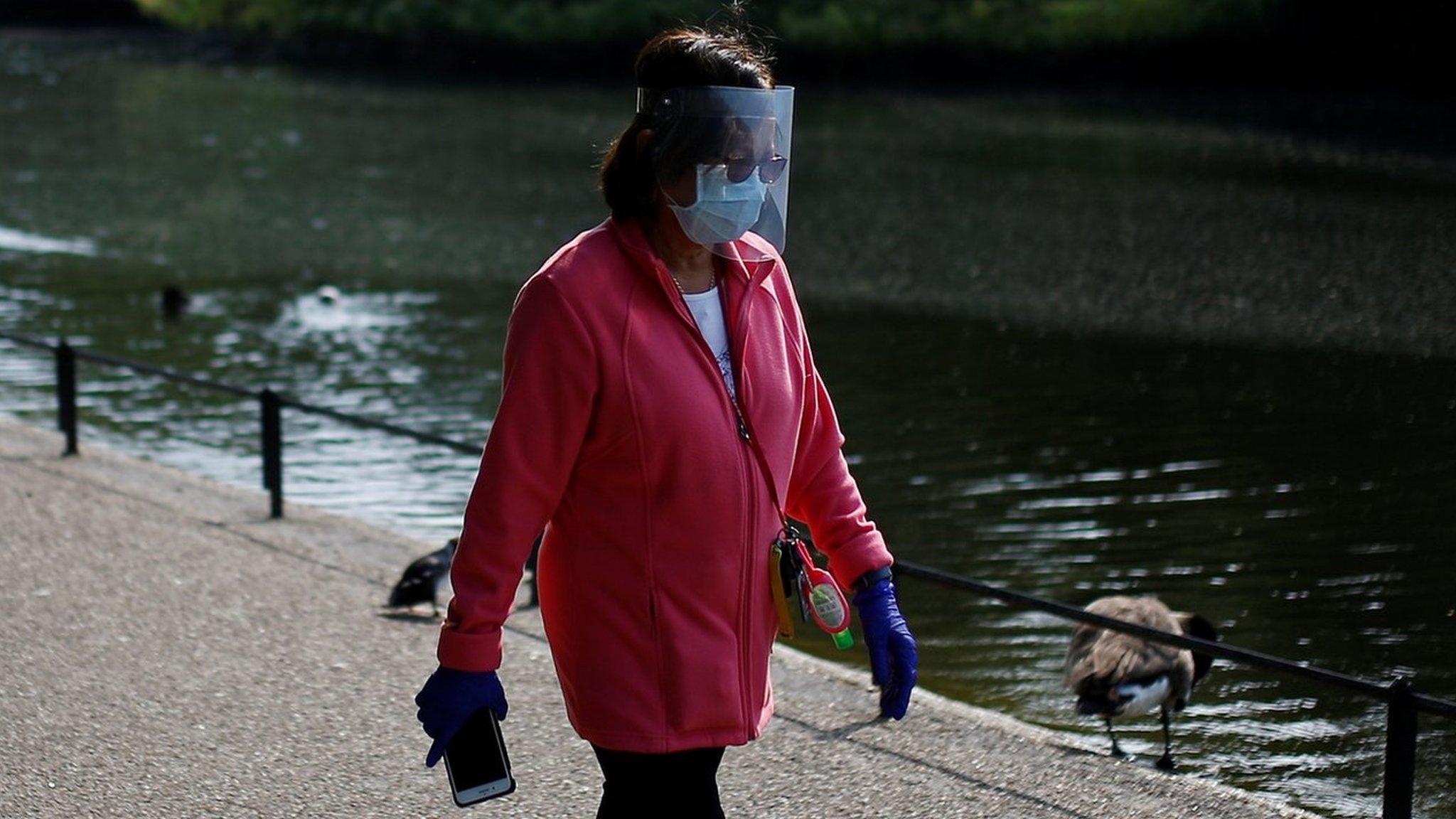
- Published9 May 2020
